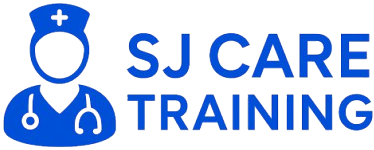
About Course
The Mandatory Refresher Training is a comprehensive annual update designed to ensure all healthcare and care-support staff remain compliant, skilled, and confident in essential safety and safeguarding practices.
Delivered by qualified NHS trainers, this programme covers all statutory requirements and aligns with UK care regulations, giving participants the knowledge and competence needed to deliver safe, person-centred care.
Training Program:
- Fire Safety and Awareness
- Health & Safety at Work Act (HASAWA)
- Control of Substances Hazardous to Health (COSHH)
- Information Governance & Data Protection (GDPR)
- Communication in Practice & Conflict Management
- Equality and Diversity
- Security Issues / Terrorism & Preventing Radicalisation
- Infection Prevention & Control
- Food Hygiene
- Fluids and Nutrition Management
- Safeguarding Vulnerable Adults (Level 1 & 2)
- Medication Awareness
- Safeguarding Children (Level 1 & 2)
- Moving and Handling (Practical Session Included)
- Basic Life Support including CPR (Practical Session)
- Basic First Aid
- Lone Working
- Understanding Learning Disabilities & Autism Spectrum Disorder
How the Training Will Take Place:
-
Format: Face-to-face classroom training
-
Duration: 1 full day (approx. 6–8 hours)
-
Location: Community hall or assigned training venue
-
Facilitators: NHS-qualified nurses with real-world care experience
-
Certification: Certificate of completion
